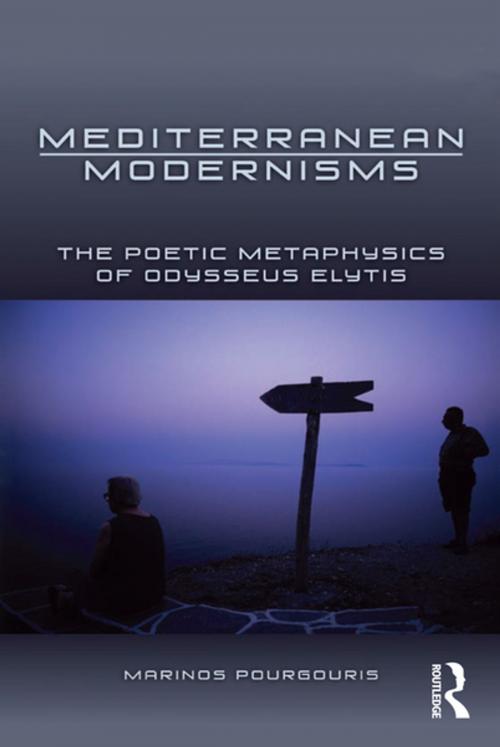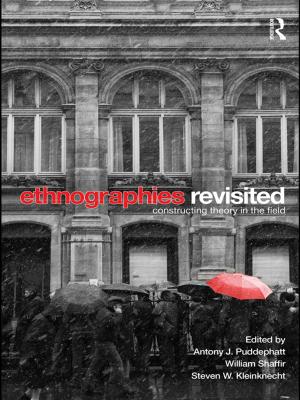Mediterranean Modernisms
The Poetic Metaphysics of Odysseus Elytis
Fiction & Literature, Literary Theory & Criticism, Theory| Author: | Marinos Pourgouris | ISBN: | 9781317098010 |
| Publisher: | Taylor and Francis | Publication: | April 22, 2016 |
| Imprint: | Routledge | Language: | English |
| Author: | Marinos Pourgouris |
| ISBN: | 9781317098010 |
| Publisher: | Taylor and Francis |
| Publication: | April 22, 2016 |
| Imprint: | Routledge |
| Language: | English |
Engaging with the work of Nobel Prize-winning poet Odysseus Elytis within the framework of international modernism, Marinos Pourgouris places the poet's work in the context of other modernist and surrealist writers in Europe. At the same time, Pourgouris puts forward a redefinition of European Modernism that makes the Mediterranean, and Greece in particular, the discursive contact zone and incorporates neglected elements such as national identity and geography. Beginning with an examination of Greek Modernism, Pourgouris's study places Elytis in conversation with Albert Camus; analyzes the influence of Charles Baudelaire, Gaston Bachelard, and Sigmund Freud on Elytis's theory of analogies; traces the symbol of the sun in Elytis's poetry by way of the philosophies of Heraclitus and Plotinus; examines the influence of Le Corbusier on Elytis's theory of architectural poetics; and takes up the subject of Elytis's application of his theory of Solar Metaphysics to poetic form in the context of works by Freud, C. G. Jung, and Michel Foucault. Informed by extensive research in the United States and Europe, Pourgouris's study makes a compelling contribution to the comparative study of Greek modernism, the Mediterranean, and the work of Odysseus Elytis.
Engaging with the work of Nobel Prize-winning poet Odysseus Elytis within the framework of international modernism, Marinos Pourgouris places the poet's work in the context of other modernist and surrealist writers in Europe. At the same time, Pourgouris puts forward a redefinition of European Modernism that makes the Mediterranean, and Greece in particular, the discursive contact zone and incorporates neglected elements such as national identity and geography. Beginning with an examination of Greek Modernism, Pourgouris's study places Elytis in conversation with Albert Camus; analyzes the influence of Charles Baudelaire, Gaston Bachelard, and Sigmund Freud on Elytis's theory of analogies; traces the symbol of the sun in Elytis's poetry by way of the philosophies of Heraclitus and Plotinus; examines the influence of Le Corbusier on Elytis's theory of architectural poetics; and takes up the subject of Elytis's application of his theory of Solar Metaphysics to poetic form in the context of works by Freud, C. G. Jung, and Michel Foucault. Informed by extensive research in the United States and Europe, Pourgouris's study makes a compelling contribution to the comparative study of Greek modernism, the Mediterranean, and the work of Odysseus Elytis.















